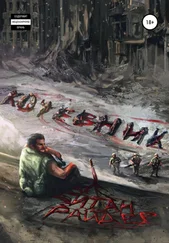Итан Рарик - Desperate Passage
Здесь есть возможность читать онлайн «Итан Рарик - Desperate Passage» весь текст электронной книги совершенно бесплатно (целиком полную версию без сокращений). В некоторых случаях можно слушать аудио, скачать через торрент в формате fb2 и присутствует краткое содержание. Жанр: Путешествия и география, на английском языке. Описание произведения, (предисловие) а так же отзывы посетителей доступны на портале библиотеки ЛибКат.
- Название:Desperate Passage
- Автор:
- Жанр:
- Год:неизвестен
- ISBN:нет данных
- Рейтинг книги:4 / 5. Голосов: 1
-
Избранное:Добавить в избранное
- Отзывы:
-
Ваша оценка:
- 80
- 1
- 2
- 3
- 4
- 5
Desperate Passage: краткое содержание, описание и аннотация
Предлагаем к чтению аннотацию, описание, краткое содержание или предисловие (зависит от того, что написал сам автор книги «Desperate Passage»). Если вы не нашли необходимую информацию о книге — напишите в комментариях, мы постараемся отыскать её.
Desperate Passage — читать онлайн бесплатно полную книгу (весь текст) целиком
Ниже представлен текст книги, разбитый по страницам. Система сохранения места последней прочитанной страницы, позволяет с удобством читать онлайн бесплатно книгу «Desperate Passage», без необходимости каждый раз заново искать на чём Вы остановились. Поставьте закладку, и сможете в любой момент перейти на страницу, на которой закончили чтение.
Интервал:
Закладка:
In the circle around the fire, five-year-old Isaac Donner was wedged in between his big sister Mary and Patty Reed. Sometime in the night he whispered a final shallow breath. Amid the noise and fear and confusion, the two girls did not notice his death until the morning.
With daylight came occasional breaks, a few minutes of calm before a resumption of the deluge, and as the day wore on, the storm slackened substantially. In time, the winds calmed and the snow stopped, and the sly made plain that the torrent was over.
At Alder Creek, Nicholas Clark, one of the relief party members left behind to care for the Donners, peered out of the tent and estimated that the storm had dropped six feet of fresh snow. Up near the summit, a thousand feet higher, there undoubtedly was more.
BY THE TIME THE STORM SUBSIDED, Reed's eyesight had returned, and he declared that the party must rise and walk. Another blizzard might strike at any moment. They were without food, and they had no idea if they would be resupplied any time soon. Their own advance party—the three men sent ahead to hunt for the cache—might easily have died in the storm (in fact, they had survived but had been forced to head toward civilization, not back to help the others), and the separate party led by Woodworth, though long expected, had yet to materialize. To stay where they were would be suicide.
But some members of the party simply could not go on. Elizabeth Graves was near death, and it was unclear how her four young children could continue without her. Mary Donner had burned her foot in the campfire and could barely walk. Peggy Breen was holding up well, but Patrick was sickly and spent, just as he often had been at the lake. Two Breen sons struggled. John, the teenager who had handled so many of the chores around the family's cabin, was still recovering from his near-fatal collapse into the fire. James, who was six, was already far gone.
Looking around him at all of this, Patrick Breen announced that his family would stay. It was better to die by a warm fire than collapse into the snow somewhere out on the trail, he said. Perhaps another relief party would come through with provisions. Or perhaps even Reed and his men might make it to safety and send someone back.
Reed began to argue. They must get up and walk, he exhorted. To idle was madness. It would mean certain death. Repeatedly Reed implored them to move. Repeatedly Breen said they would not. Finally, Reed called over the other rescuers and asked them to serve as witnesses to the fact that he was not abandoning his charges, that Breen and the others were staying behind voluntarily.
In fact, both men were merely doing what they had to do. Reed was right that those who were able should push onward. But Breen was right that much of the party was in no condition to do so. Between his family and the Graveses, there were at least five children too young or too weak to walk. Among the adults, it's likely that Elizabeth Graves was unable to go anywhere at all, and so it's difficult to know how one would have convinced her four children to simply abandon their mother to a lonely death.
Nor could Reed and the other rescuers help much. Miller, the strongest of the bunch, planned to carry Tommy Reed, but the other men were apparently unable to take another child. Patty Reed remembered that Mary Donner was willing to go, but with her injured foot was unable to walk. In a letter years later, Patty said that her father asked if any of the other men could help her, but apparently no one stepped forward, and Patty produces no evidence that Reed himself offered to carry Mary, although she consistently portrays her father in the most positive terms possible. If the rescuers were unable to carry the children, then Breen was doubly right to say that for his family and the Graveses, with so many small youngsters, a continued march would have been foolhardy. Perhaps it was only with time that Reed grew sensitive to the idea that he had abandoned people. His diary, which includes an entry for that day, never mentions it, but his later accounts place a greater and greater emphasis on his efforts to exhort Breen to move.
The departing marchers stacked up what wood they could, estimating it at a three-day supply. The party now included just three people rescued from the high camps: Patty and Tommy Reed and fifteen-year-old Solomon Hook, Jacob Donner's stepson. Behind them, lying about on the snow, were thirteen people, most of them children: the seven Breens, Elizabeth Graves and her four offspring, and Mary Donner. They had no shelter, no food, no expectation that they would regain enough vigor to walk to safety unaided. They could do nothing but wait, whether for rescue or death.
SELIM WOODWORTH, THE MAN SO MANY PEOPLE were banking on, was heading toward the high country. After sailing upriver from San Francisco, Woodworth had reached Sutter's Fort in mid-February, then gathered supplies and made other preparations. On March 2, he was marching up the mountains when he encountered Tucker's first relief party coming down. He turned around and escorted them to safety, apparently arranging for their transportation to Sutter's Fort. Then he headed back into the wilderness. By now, the great blizzard was brewing, and it's likely that Woodworth spent the two days of the storm at Bear Valley, a well-known camping ground partway up the trail.
The reasons for his slow progress thus far would eventually become a topic of great debate. Defenders say he did the best he could with little help, manpower having been depleted by recruitment for earlier rescue parties and the absence of men who were fighting in the war with Mexico. Detractors claim Woodworth moved too slowly, perhaps from incompetence, perhaps indolence, perhaps even cowardice. Billy Graves, who was capable of getting things wrong, claimed that he saw Woodworth lollygagging around camp drunk.
Whatever the cause, the delay was over now. It had stopped snowing, and Woodworth and a precariously small party—just two or three other men—were on their way at last.
AT STARVED CAMP, THE BREENS suffered through the cold and isolation. The history of the Donner Party owes much to Patrick Breen's diligence as a diarist, for his chronicle of the long months at the lake cabins is a unique and invaluable record. But once Breen and his family left the lake, Patrick abandoned his journalistic role entirely. Peggy Breen, on the other hand, is a silent figure at the lake but one who takes center stage during the rescue.
At Starved Camp, both before Reed's departure and after it, she appears to have been among the more energetic adults, attending to the children, including her own, with far more vigor than her husband. This heroic role eventually caught the eye of a writer named Eliza Farnham, who interviewed Peggy Breen about the sad days at Starved Camp. It is to Peggy Breen's account that we largely owe our knowledge of what happened.
The remnant faded toward death almost as soon as Reed and the others walked away. Elizabeth Graves died first, followed by her son Franklin. Almost as bad, the fire kept melting the snow, and the platform of green logs began to sink, so that with each passing hour the flames were a little farther from the skeletal figures in need of the heat. Without the chance to warm themselves, they would all surely perish.
JAMES REED PITCHED FORWARD INTO THE SNOW like a man felled by a gunshot. His snow-blindness had returned, and he stumbled along insensible to his surroundings, an incapacitated man who somehow kept moving. His feet were bleeding, the result of bad frostbite suffered during the storm.
Walking away from Starved Camp, Patty had done the best she could, but eventually she succumbed to her weariness and could go no farther. She was no toddler. At nine, she was heavy enough to constitute a substantial load for a man in good condition, let alone one who had almost died the night before. But there was no other choice, so her father bent down to a knee and took her on his back. To keep his hands free, he drew a blanket around her, then pulled the ends across his chest and tied them to a sturdy stick.
Читать дальшеИнтервал:
Закладка:
Похожие книги на «Desperate Passage»
Представляем Вашему вниманию похожие книги на «Desperate Passage» списком для выбора. Мы отобрали схожую по названию и смыслу литературу в надежде предоставить читателям больше вариантов отыскать новые, интересные, ещё непрочитанные произведения.
Обсуждение, отзывы о книге «Desperate Passage» и просто собственные мнения читателей. Оставьте ваши комментарии, напишите, что Вы думаете о произведении, его смысле или главных героях. Укажите что конкретно понравилось, а что нет, и почему Вы так считаете.












